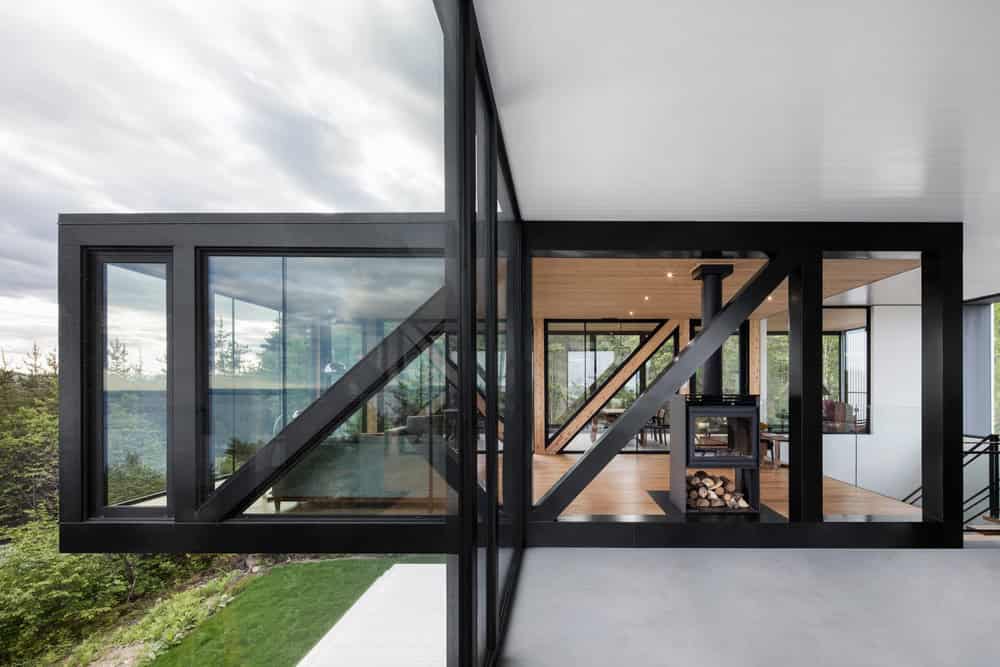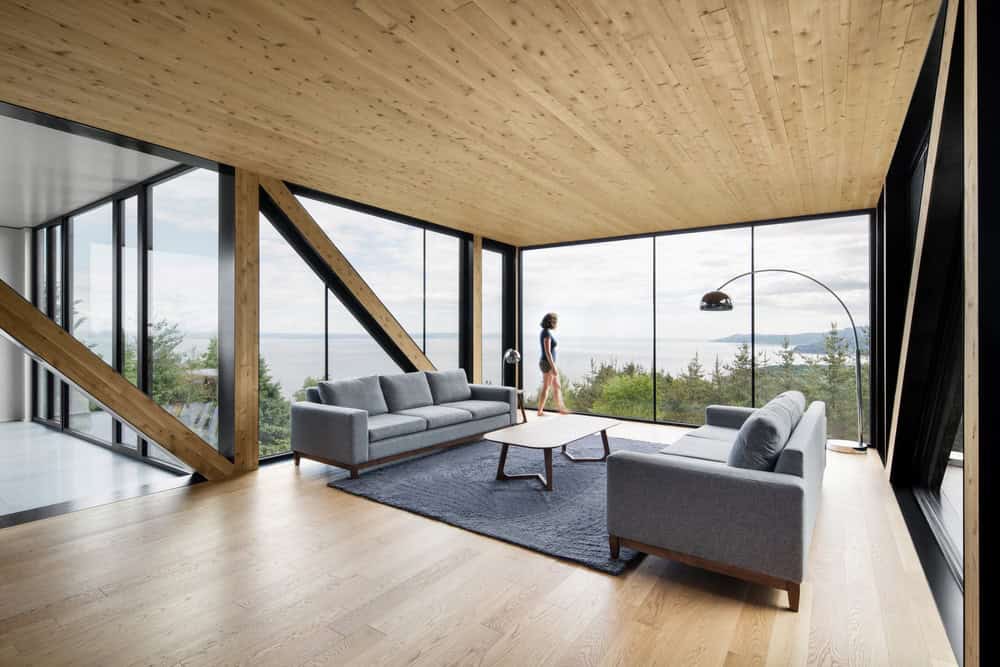Project: Blanche Chalet
Architects: ACDF Architecture
Location: Cap A L’Aigle Village Des Lilas, 762 Rue Saint Raphaël, La Malbaie, QC G5A 2P2, Canada
Area: 4,275 sq ft
Year: 2016
Photographs by: Adrien Williams


Located in Canada’s Charlevoix region, the Blanche Chalet is a two-story house that boasts a large cantilevered volume. Its design belongs to the local architecture studio – ACDF Architecture.
Chalet Blanche or White Chalet sits atop a concrete base which serves as a nod to the stone foundations of the old wooden barns that once swept the surrounding landscape.
From the architects: “The “Blanche” Chalet, whose name evokes the spirit of the vernacular houses of the region, is situated in La Malbaie’s area of the “Terrasses Cap à l’Aigle”. Its simple and pure architecture gently complements the landscape of Charlevoix in a modern fashion.
The raw concrete materiality of the lower level is a nod to the stone foundations of the old wooden barns that once swept the landscape. This base also serves as the foundation for the main entrance and houses the technical functions of the cottage. Perched on the podium, the upper two levels are clad in a white stained wood, which is reminiscent of lime plaster that was applied to the ancestral homes of the area. The wood is smooth or raw textured and, at times, creates an openwork siding, depending on the façade, bringing lightness and joy to the house.
The four bedrooms of the “Blanche” Chalet are centrally located in order to maximize the panoramic views of the living spaces that are at the top level. The kitchen and dining room are characterized by large 360-degree fenestration, while the living space is housed in a floating overhang whose unique form is reminiscent of the structure of vernacular bridges. This raised volume allows for a direct experience of the enchanting sunsets of Cap à l’Aigle and the shimmering reflections of the estuary of the St. Lawrence within the comforts of the home.
This cottage residence is the expression of the atmosphere sought by its owner. The social nature of the house, its openness to family, friendly, and sometimes professional exchanges are favored by its composition that sensitively juxtaposes the spaces of common life and the private life (bedrooms). The abundant use of fenestration underlines a constant connection between the interior and nature, including the lake and the forest. The use of natural materials, such as stone, wood, and steel in pure and unique forms links the building to the context and invites contemplation.”


This website uses cookies.